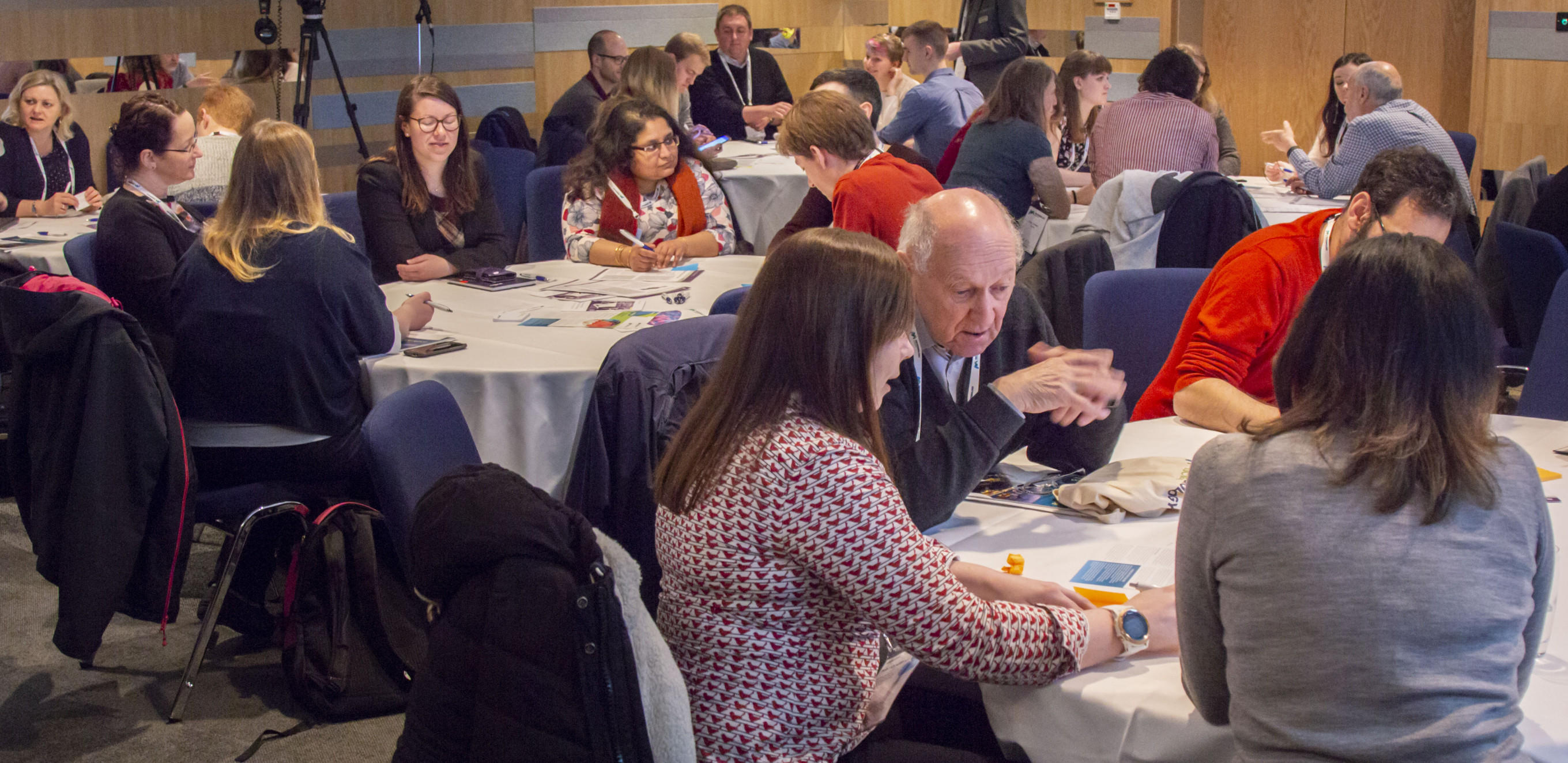A briefing encounter with policymaking
Posted on May 29, 2018 by Dr Victoria Butt
Victoria Butt, PhD Student at the Centre for Host-Microbiome Interactions, King’s College London, attended the session ‘Essential Skills: Engaging in Science Policy’ workshop at Microbiology Society’s Annual Conference 2018. Here, she discusses what the session involved and what she gained from it.
The Microbiology Society’s Annual Conference 2018 was my first international academic conference and I already know it’ll become a favourite. The conference hosted a wide breadth of academic sessions and professional development workshops, including the “Essential Skills: Engaging in Science Policy” workshop, which I participated in.
The workshop was run by the Microbiology Society along with the Parliamentary Office of Science and Technology (POST) and the Campaign for Science and Engineering (CaSE).
As a first-year bioinformatics PhD student with little experience of science policy, I did not know what to expect from the workshop, but I enjoyed it from start to finish and met some wonderful people. Before the workshop began, our minds were set at ease with some refreshments and a welcome introduction from Peter Cotgreave, the Society’s CEO. Sarah Bunn from POST gave us a run-down of how research is used in Parliament, while James Tooze from CaSE covered engaging with Government. It became clear that to suggest a completely new policy based on fresh evidence would take more than just a phone call to Parliament.
Paul Richards, Policy Manager at the Microbiology Society, talked about how the Society’s dedicated policy team support members to engage with policy-makers to support and translate microbiology research and innovation. A good way to inform policy-makers about our research is through a policy briefing, as outlined by Sarah Foxen from POST.

We got into teams of 3 or 4 and were set the task of drafting a policy briefing on a subject area of our choice in 30 minutes. A tough challenge, but nothing our team couldn’t handle. We put our heads together and drafted our first policy briefing.
We chose to focus on antimicrobial resistance (or AMR for short). It is a topic close to my research area, but we had to communicate AMR simply from a healthcare perspective - worlds apart from the bioinformatics I’m used to. Fortunately, we had Roya Ziaie, Policy Officer at the Microbiology Society, to guide us.
We were provided with a large sheet of paper to write on with the structure of a typical policy briefing. This included the title, introduction, evidence, key findings, implications, references and contact details. In reality, a policy briefing would be a clean, formatted word document, with extra factoid boxes and graphics, completed within a tight deadline of a few days or weeks – but we had 30 minutes. Despite this, we were still able to gather together some key points on why AMR is important, pieces of research evidence and a few policy recommendations on what could be done.
Our team were very knowledgeable in AMR and we were bubbling with ideas, which I was keen to put down on paper. There were challenges writing for a policy audience. Roya pointed out we needed to convey one clear message, which also wasn’t helped by our use of complex scientific jargon. Eventually, we began to focus our policy briefing on widening AMR stewardships in “One Health” across healthcare and agriculture. But by the time we were getting a clearer picture, our time was up.
We realised together as team we knew so much about AMR but were reluctant to narrow down our goal early. Who would have thought the most popular topic could be the most challenging?
Nonetheless, it was by far my favourite session at the conference. I realised I miss working in a team. Thinking fast and bringing together ideas as a group is usually lacking in solitary PhD research. We all developed skills from this workshop that could also be applied outside policy-making, especially communicating research to a wide public audience.
Would I do this again? Yes. Would I become an MP? We’ll see. Back to the PhD.
If you didn’t make our Engaging in Science Policy workshop at Annual Conference 2018, our speakers have shared some top tips for members who want to get involved in informing and influencing policy in the latest issue of Microbiology Today.

